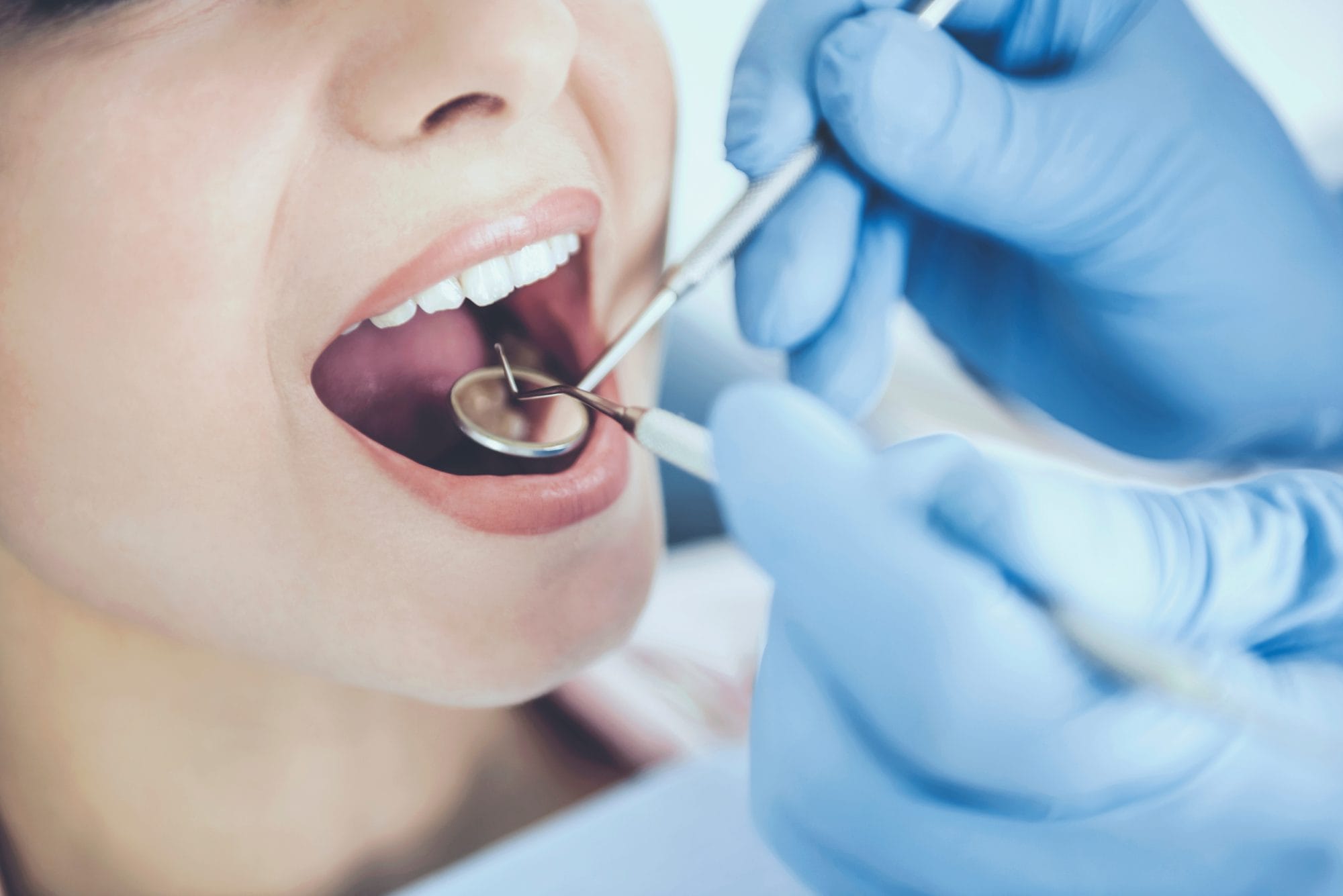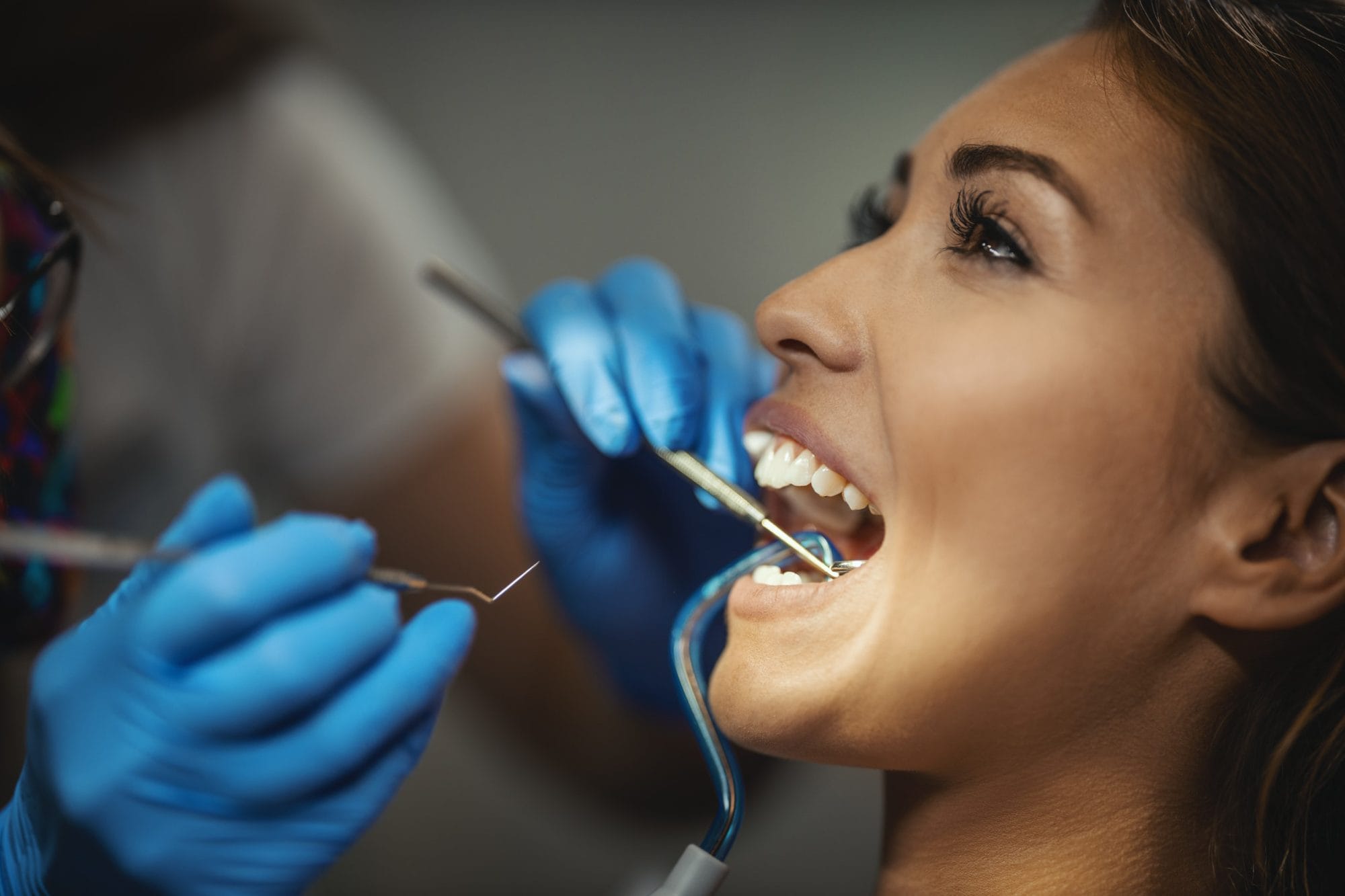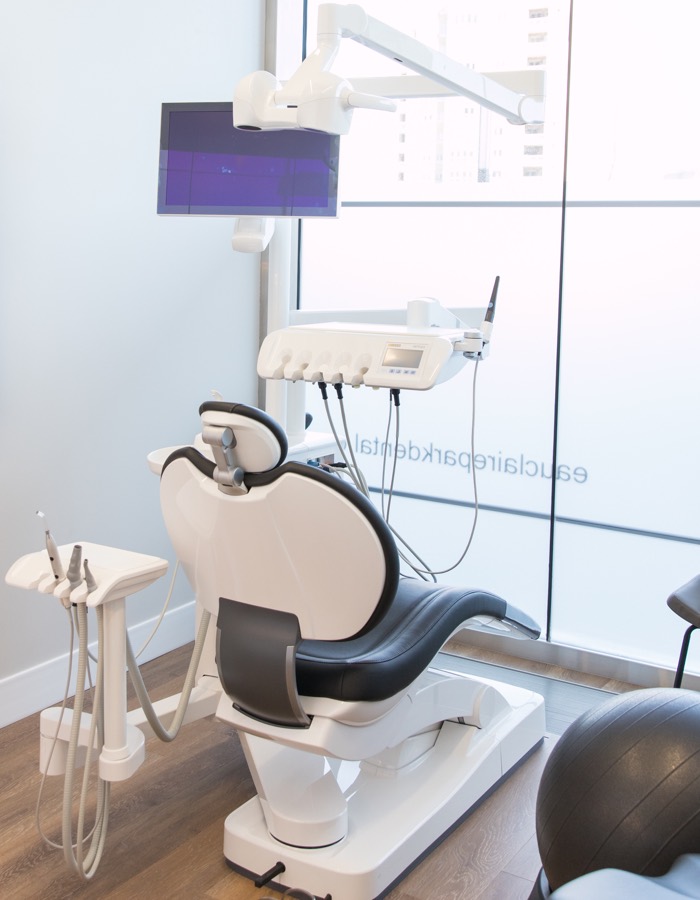Dental Caries
Defend Your Smile Against Cavities
What if you could prevent cavities from happening in the first place?
Cavities, also known as dental caries, affect nearly everyone at some point. At Eau Claire Park Dental, we go beyond just filling cavities by focusing on preventing them from developing in the first place. Our goal is to understand and address your risk factors for tooth decay to protect your smile and overall health.
Prevent, treat, and eliminate dental caries with personalized care at Eau Claire Park Dental.


What is Dental Caries
Dental caries, commonly known as cavities, result from a bacterial imbalance on the teeth. This imbalance is influenced by factors such as your oral environment, dietary choices, and hygiene habits. While everyone with teeth is at risk of developing tooth decay, the likelihood varies significantly. Studies show that even individuals at low risk have a 23.6% chance of developing new cavities within a year, while those at high or extreme risk face an 88% chance.
Cavities are more than just a dental issue—they can have serious implications for your overall health. The bacteria linked to cavities, Streptococcus mutans, has been found in heart valves and coronary arteries, suggesting a connection between oral health and heart disease.
The good news? Understanding and addressing the factors causing an imbalance in your mouth can help control cavity formation. With a personalized caries risk assessment and the use of early intervention professional products, it’s possible to reduce cavity rates by 24% to 74%.
Why Do Cavities Happen?
Tooth decay doesn’t occur overnight. It’s the result of various factors that disrupt the balance of your oral environment. By identifying and addressing these causes, you can take proactive steps to protect your teeth.
Primary Causes of Dental Caries:
Cavities Affect More Than Just Your Teeth
Cavities aren’t just a dental problem—they’re a potential risk to your overall health. Harmful bacteria, like Streptococcus mutans, don’t stay confined to your mouth. Once they enter your bloodstream, they can travel to other parts of your body, increasing the risk of systemic conditions such as:
Protecting your teeth is about more than a beautiful smile—it’s about safeguarding your overall well-being.
Want to learn more? Discover how to protect your smile and your health with Dr. Graas’ e-book, A Patient’s Guide to Dental Caries.


Prevent Cavities With Early Detection and Personalized Care
At Eau Claire Park Dental, our approach goes beyond treatment. We focus on prevention, early detection, and making it simple to protect your smile:
Personalized Caries Risk Assessment
We assess your unique risk factors, such as oral habits, diet, and health conditions, to create a customized prevention plan tailored just for you.
Advanced Treatments and Products
Using evidence-based solutions like fluoride applications, antibacterial rinses, and remineralization agents, we strengthen and protect your teeth against decay.
Education for Lifelong Health
We believe informed patients are empowered patients. Our team is here to empower you with personalized tips and tools, making it easy to care for your smile at home.
Preventing cavities is a partnership. Let’s work together to safeguard your smile and overall well-being.
Proven Ways to Prevent and Reverse Tooth Decay
Effectively managing dental caries requires a combination of advanced treatments and everyday habits. Here are the most effective strategies to protect and restore your teeth:


Small Changes, Big Results
Investing in prevention isn’t just easier—it’s smarter. By adopting tailored strategies and staying proactive, you can:
Simple steps like regular dental visits, personalized care plans, and using dentist-recommended products can make a lifetime of difference. Start today and enjoy a healthier, brighter smile for years to come.
Our Patients Love the Results
“I’ve seen quite a few dentists over the years, and Dr. Graas is by far the best. She combines exceptional skill with a warm and caring approach, making each visit comfortable. She takes the time to explain every procedure, ensuring that I feel well-informed. She's incredibly detail-oriented and truly cares about her patients. I highly recommend Dr. Graas to anyone looking for a dentist who truly puts their patients and practice first.” ~ Michael S.

Why Visit Eau Claire Park Dental?
Our commitment to prevention goes hand in hand with precision care. Whether addressing cavities or helping you avoid them altogether, we take a proactive approach to safeguard your smile and overall health.
Prevention-Focused Expertise
We specialize in identifying and addressing dental issues before they become major concerns, ensuring long-term oral health.
State-of-the-Art Technology
From advanced diagnostics to modern treatment methods, we utilize the best tools to deliver precise, effective care.
Personalized Treatment Plans
No two smiles are the same. Our team creates customized strategies designed to meet your unique oral health goals.
Comfortable Environment
Our welcoming clinic and attentive team ensure that every visit is as stress-free and supportive as possible.
Your smile deserves expert care and a personalized touch. Experience the Eau Claire Park Dental difference today.

Concerned About Dental Cavities?
Don’t let cavities compromise your oral health! Schedule a consultation with Dr. Graas to explore treatment options and learn how to prevent future cavities for a healthier, brighter smile.
"*" indicates required fields